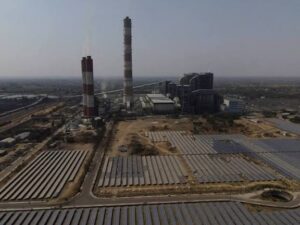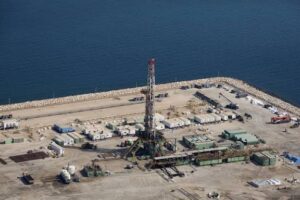The Nigerian Upstream Petroleum Regulatory Commission (NUPRC) has said its reforms will drive major gains in crude oil and natural gas production while strengthening investor confidence in the sector.
Speaking at the 50th anniversary of the Nigerian Association of Petroleum Explorationists (NAPE) in Lagos, the Commission’s Chief Executive, Gbenga Komolafe, highlighted key priorities such as transparent licensing rounds, opening up frontier basins, and restarting inactive oil and gas assets.
Nigeria’s reserves currently stand at 37.28 billion barrels of oil and 210.54 trillion cubic feet of natural gas. Daily production is around 1.8 million barrels of oil and 8 billion standard cubic feet of gas. Komolafe projected that, with fresh investments and stronger infrastructure, the country could reach 3 million barrels of oil and 12 billion standard cubic feet of gas daily.
He explained that meeting this target would depend on unlocking underexplored reserves, fast-tracking development of existing fields, and expanding key energy infrastructure to support both export growth and domestic consumption.
Komolafe noted that the Petroleum Industry Act, recent executive directives, and fiscal incentives have created a reform-friendly climate that positions Nigeria as a highly competitive energy hub.
He also stressed that new licensing rounds are creating opportunities in onshore, shallow water, and deep offshore blocks. Beyond oil, he said Nigeria is also pushing natural gas development through LNG projects, floating LNG, compressed natural gas distribution, and gas-to-power schemes to boost energy supply and exports.
In addition, he pointed to new prospects in renewable energy, decarbonisation technologies, and other green investments.
While challenges such as infrastructure gaps and global energy transition concerns persist, Komolafe maintained that they can be resolved through coordinated strategies and partnerships with stakeholders.
He concluded that Nigeria’s abundant resources, large youthful workforce, and reform-driven policies make it an attractive and promising destination for global energy investors.









